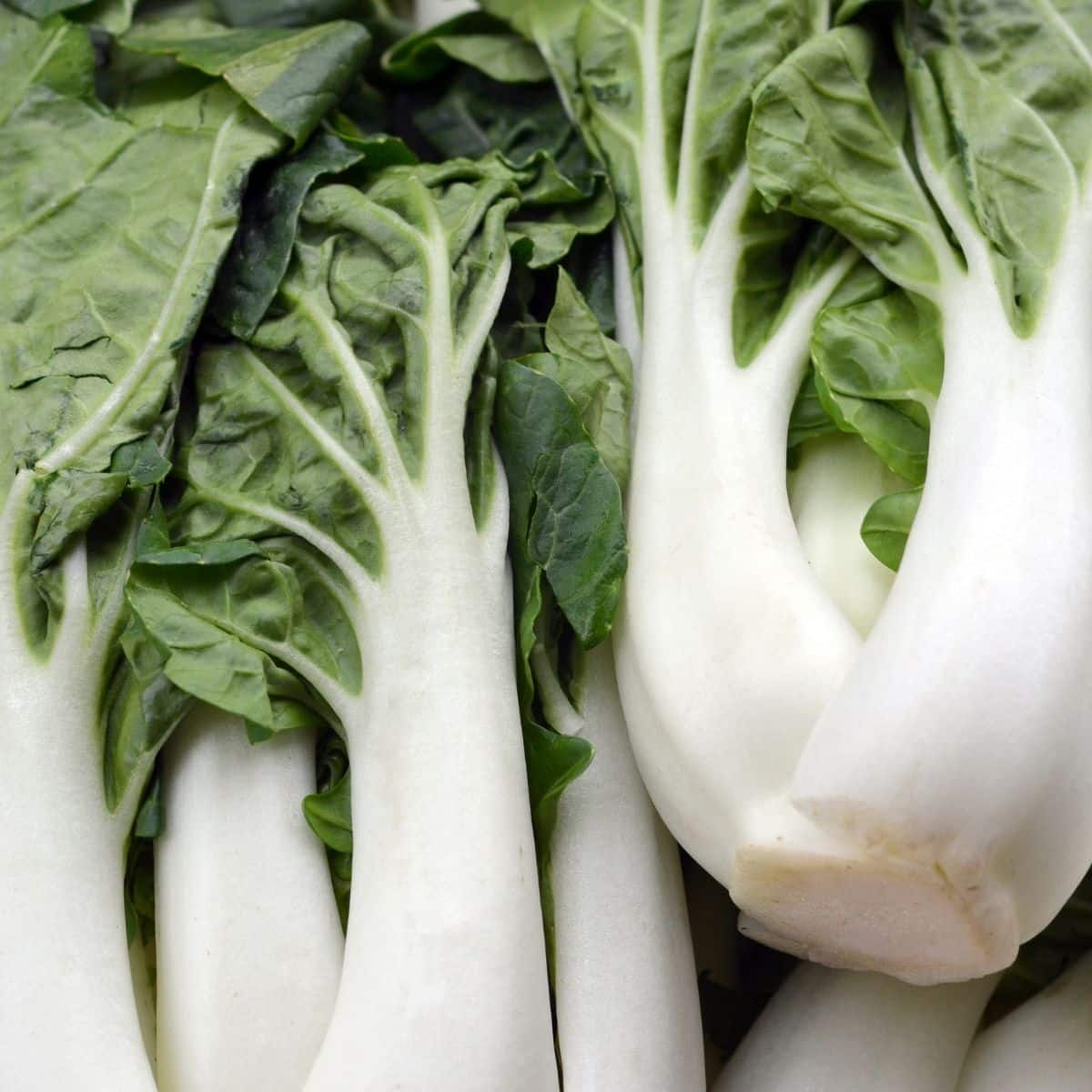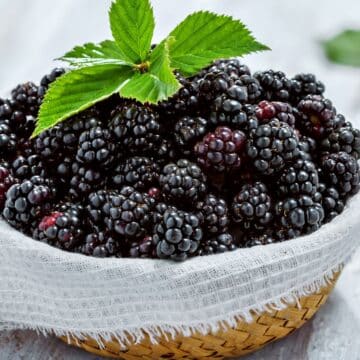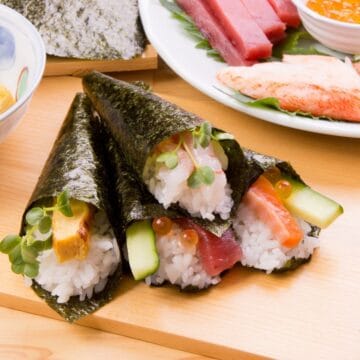When you're wondering what the difference between pak choy vs bok choy may be, you can read on to discover what both are and if they're the same! We love Chinese cabbage so thought we'd share everything you need to know about this great ingredient!

Jump to:
Language can be a confusing thing sometimes. Even within the same language, there can be regional differences in what words mean, and vegetables are often a perfect example of this, particularly Pak Choy and Bok Choy. So what exactly is the difference between these two greens?
In reality, there is no difference between Pak Choy and Bok Choy. They are simply different ways of referring to the same vegetable. More specifically, they are both types of Chinese white cabbage.
Pak Choy vs Bok Choy — Why The Confusion?
So if Pak Choy and Bok Choy are the same vegetables, why is there so much confusion about them?
Well, it all comes down to regional differences within China. Pak Choy is actually the more traditional name for Chinese cabbage, and it is still used in much of mainland China. However, in other regions, such as Hong Kong and Taiwan, the vegetable is more commonly known as Bok Choy.
The confusion doesn’t stop there, however. In addition to Pak Choy and Bok Choy, Chinese cabbage is also sometimes referred to as white cabbage, celery cabbage, or spoon cabbage. So next time you’re at the grocery store and can’t remember which name to look for, just remember that they all refer to the same thing.
What Is Chinese Cabbage?
Now that we’ve cleared up the confusion about Pak Choy vs Bok Choy, let’s take a closer look at Chinese cabbage itself.
Chinese cabbage, also known as Pak Choy or Bok Choy, is a type of vegetable that is widely used in East Asian cuisine. It is a type of white cabbage and is related to other types of cabbages such as broccoli and cauliflower. The scientific name for Chinese cabbage is Brassica rapa subsp. Chinensis.
Chinese cabbage has a long history in East Asia and has been used for centuries in various dishes. It is a popular vegetable in China, Taiwan, and Hong Kong and is often used in stir-fries, soups, and salads.
As a versatile vegetable that can be cooked in many different ways, Bok Choy has a mild flavor that goes well with many different flavors, and it can be cooked quickly using methods like stir-frying or steaming.
Benefits Of Chinese Cabbage
Chinese cabbage is not just a delicious vegetable, but it is also packed with nutrients that can offer many health benefits.
Some of the health benefits of consuming Chinese cabbage include:
- Boosting your immune system: Chinese cabbage is a good source of vitamin C, which helps boost your immune system and protect you from infection.
- Reducing inflammation: The antioxidants present in Chinese cabbage can help reduce inflammation in the body, which can help improve overall health.
- Preventing cancer: The antioxidants present in Chinese cabbage may help protect against certain types of cancer, including ovarian cancer and stomach cancer.
- Improving heart health: The fiber present in Chinese cabbage can help reduce cholesterol levels and improve heart health.
- Aiding in weight loss: Chinese cabbage is a low-calorie food that is high in fiber, which can help you feel fuller for longer and aid in weight loss.
Can I Use Pak Choy Instead of Bok Choy?
If you go to your local grocery store and see that they have Pak Choy but not Bok Choy, don’t worry — you can still use Pak Choy in your recipe.
As we mentioned before, Pak Choy and Bok Choy are actually the same vegetables, just with different names. So if a recipe calls for Bok Choy, you can use Pak Choy instead, and vice versa.
Of course, if you’re looking for a specific type of Chinese cabbage, such as napa cabbage or tatsoi, then you will need to find that specific type of cabbage. But if a recipe just calls for “Chinese cabbage,” then you can use either Pak Choy or Bok Choi.
What Is a Good Substitute for Pak Choi?
If you can’t find Pak Choi at your local grocery store, or if you’re looking for a different vegetable to use in your recipe, there are a few good substitutes that you can use.
Some good substitutes for Pak Choi include:
- Napa cabbage: Napa cabbage is another type of Chinese cabbage that can be used as a substitute for Pak Choi. It has a similar flavor and texture and can be used in the same way.
- Tatsoi: Tatsoi is another type of Asian cabbage that can be used as a substitute for Pak Choi. It has a slightly different flavor but can be used in the same way.
- Kohlrabi: Kohlrabi is a type of cabbage that is similar in appearance to Pak Choi. It has a slightly sweeter flavor but can be used in the same way.
- Spinach: Spinach is a type of leafy green that can be used as a substitute for Pak Choi. It has a similar texture but a slightly different flavor.
- Swiss chard: Swiss chard is another type of leafy green that can be used as a substitute for Pak Choi. It has a similar flavor and texture but may need to be cooked for a longer time.
So What's The Difference Between Pak Choy & Bok Choy?
To sum it up, there is no difference between Pak Choy and Bok Choy — they are just different names for the same vegetable. So if you’re looking for a versatile and delicious vegetable to add to your next meal, be sure to pick up some Pak Choy or Bok Choy!





Comments
No Comments